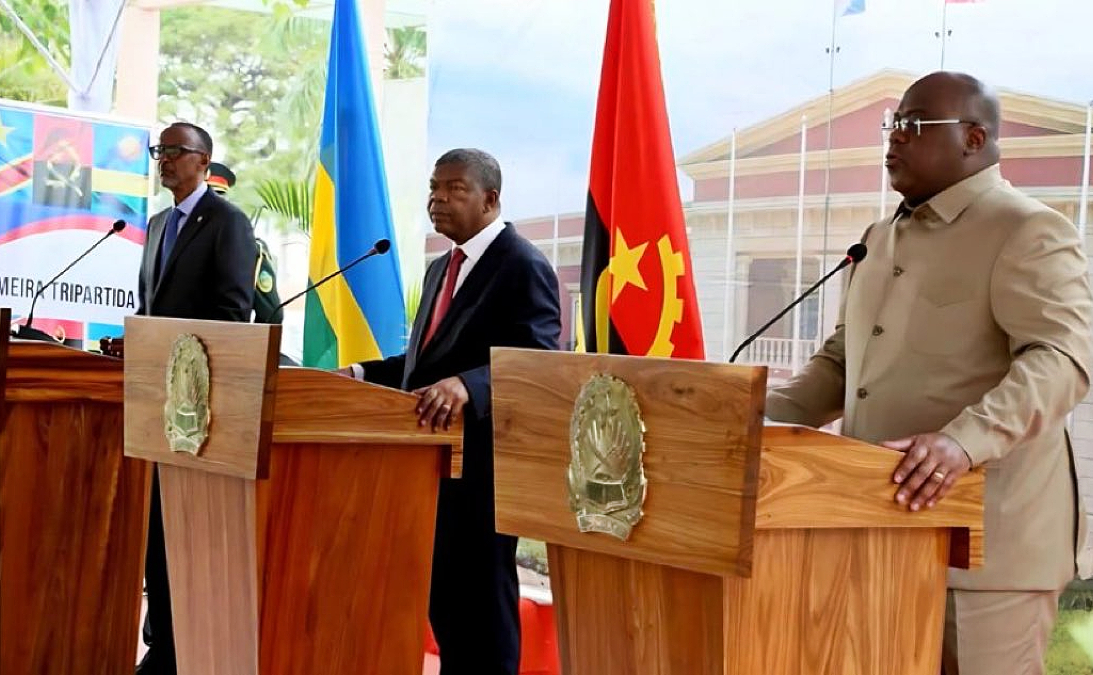Owusu on Africa
Angola’s Diplomatic Retreat: A Test for African Conflict Resolution


By Fidel Amakye Owusu
At the dawn of the 21st century, Africa boasted no shortage of nations with the diplomatic clout to mediate regional conflicts. Angola, however, was not among them.
Emerging from one of the continent’s longest and most devastating civil wars – a conflict born from its chaotic independence from Portugal and inflamed by Cold War rivalries – the country spent decades mired in violence. Even after the Berlin Wall fell and the world shifted toward unipolarity, Angola’s war raged on.
It was only in 2002, with the death of rebel leader Jonas Savimbi, that the diamond-fueled insurgency finally collapsed.
Yet Angola’s story of resilience did not end there. Against the odds, the nation transformed from a war-torn state into an unlikely peacemaker – until last week.
Angola’s “Exit” from the Congo Crisis
Angola’s announcement that it is stepping back as mediator in the Eastern Democratic Republic of Congo (DR Congo) crisis has stunned observers. President João Lourenço’s government had invested significant political capital in brokering peace in Sub-Saharan Africa’s largest nation, leveraging Angola’s hard-won post-conflict expertise.
Luanda’s diplomatic credibility was further bolstered by its recent resolution of a decades-old offshore oil dispute with the DR Congo – a rare bright spot in regional relations.
But the collapse of Angola’s mediation efforts reveals deeper fractures. Despite Lourenço’s relentless shuttle diplomacy, DR Congo President Félix Tshisekedi and Rwanda’s Paul Kagame repeatedly dodged direct talks.
Angola’s exit serves as a sobering reminder: African solutions require not just rhetoric, but trust, equity, and unwavering resolve.
Their abrupt appearance at U.S.-backed negotiations in Doha – a forum that sidelined Angolan efforts – proved the final straw. Luanda’s frustration was palpable: after months of coaxing Kinshasa to engage with M23 rebels, and after proposing a critical pre-talks ceasefire to ease tensions, Angola’s painstaking groundwork was ignored.
The timing could hardly be worse. As Angola pivots to address its own socio-economic challenges, its costly investment in regional stability now risks being overshadowed by external actors.
The proposed U.S.-DR Congo mineral-for-security deal, coupled with Qatar’s late-stage intervention, underscores a troubling trend: even as African leaders champion “homegrown” solutions, global powers continue to reshape the continent’s conflicts on their terms.
The Challenge of “African Solutions to African Problems”
Angola’s withdrawal raises urgent questions about the viability of Africa’s flagship diplomatic doctrine. The principle of “African solutions to African problems” has long been touted as a remedy to foreign interference.
Yet Luanda’s experience highlights systemic hurdles.
First, internal divisions among African states often undermine collective action. While Angola pushed for dialogue, Kinshasa and Kigali prioritized geopolitical maneuvering over compromise.
Second, the allure of external partnerships – whether security deals or resource contracts – frequently weakens regional solidarity. The DR Congo’s pivot toward Washington and Kigali’s reliance on shadow allies exemplify this dynamic.
Critically, Angola’s case also exposes a paradox: nations emerging from conflict, though rich in hard-earned wisdom, often lack the resources or political leverage to sustain mediation roles. For a country still grappling with poverty and infrastructure gaps, the cost of high-stakes diplomacy can prove unsustainable.
A Legacy in Question
Will Angola’s retreat deter future African mediation? The answer hinges on whether the continent can address its internal fissures while resisting the siren call of external “saviors.”
President Lourenço’s gambit, though unsuccessful, demonstrated that post-conflict states can pivot from chaos to leadership. But without stronger institutional support – and a genuine commitment to Pan-African priorities – the vision of self-reliant conflict resolution may remain aspirational.
As external powers deepen their footprint in the DR Congo crisis, Angola’s exit serves as a sobering reminder: African solutions require not just rhetoric, but trust, equity, and unwavering resolve.
Fidel Amakye Owusu is an International Relations and Security Analyst. He is an Associate at the Conflict Research Consortium for Africa and has previously hosted an International Affairs program with the Ghana Broadcasting Corporation (GBC). He is passionate about Diplomacy and realizing Africa’s global potential and how the continent should be viewed as part of the global collective.

